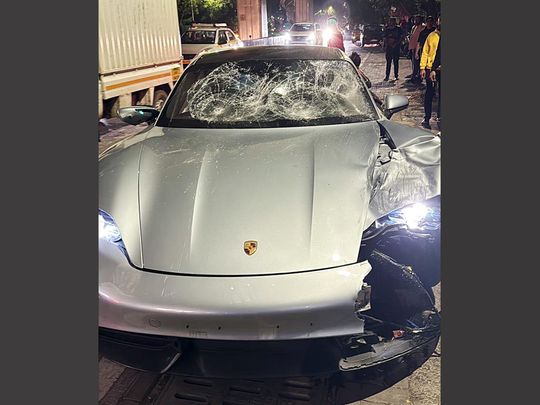
In a week, we will know who has won the most interminable elections in India, held in the most daunting heat ever measured in the subcontinent. Whoever wins, one certainty for an Indian is that we will lose something else.
Half a dozen newborn babies died in a fire in a Delhi hospital — yes, India’s capital — on the weekend, while five other tiny morsels of humanity are battling for their lives. The day before that, 33 people, including children, died in a game zone in Rajkot, Gujarat.
The Gujarat High Court said it is a “man-made tragedy” because the gaming zone appears to have taken advantage of the loopholes in the Gujarat Comprehensive General Development Control Regulations.
The company that ran the game zone had not even bothered to apply for the fire NOC, nor did they have any fire safety equipment in the zone. Incredibly, a three-story building was set up in a temporary structure without any fire safety measures.
This was in Gujarat, one of India’s showcase states, within months of the Morbi bridge collapse last October in which 141 people lost their lives. In Surat, Gujarat, in May 2019, 22 people died in a fire. In Vadodara, 14 people died in a boat capsize.
The one commonality in all these incidents: the businessmen who owned the hospital in Delhi, the play zone in Rajkot, and the Morbi bridge — all fled to avoid consequences. The other factor in common: corruption. All the operators could get away with running even a hospital without any safety regulations because they had bribed the civic and executive authorities.
Life can be cheap here
A 17-year-old rich brat in Pune, drinking and driving a Porsche — a gift from his doting father — lost control of the car and ran over two young people, a man and a woman, ten days ago. The usual corrupt playbook unfolded: the police, sensing an opportunity to make money, ensured that the boy was fed pizza in the lock-up and filed a case under bailable sections.
The mandatory medical test showed that the boy had consumed no alcohol, despite being seen on CCTV camera footage of two bars consuming quantities of alcohol. The local MLA visited the police station where the “kid” was detained to ensure that he didn’t feel lonely, and the police knew the sort of clout his rich family commanded.
Events were unfolding as usual when media outrage intervened, and the playbook was abandoned. Two doctors were arrested for tampering with the medical tests. The teenager’s grandfather was arrested for locking up a driver and trying to bribe him to take the fall for the rich drunken brat.
The usual aftermath
The Porsche was not even registered, yet it had been driven around the city for six months. A driver licence is given only after people attain the age of 18 years. But, because life is cheap, authorities looked the other way for a fat bribe.
Unfortunately, once the outrage dies down, the corrupt playbook will be followed in total, and the rich will get the different justice they are allowed in India. Equality before law and the rule of law are fundamental to a democracy, yet while we pride ourselves in calling India the world’s largest democracy, different levels of society get different treatment from the authorities.
I say this because I covered the Uphaar case in which 59 people died inside a movie hall in posh South Delhi in June 1997. The victims died because of asphyxiation, and 103 people were seriously injured in the stampede out of the burning hall. The usual aftermath was recorded: the theatre had no fire safety equipment, and space for fire safety had been illegally encroached upon by the owners.
The only reason some sort of justice was done was because of a determined mother and father who had lost both their children in the tragedy. Neelam and Shekhar Krishnamurthy gave up everything in life just to ensure that the guilty were punished.
Before the Porsche, there was the BMW case in Delhi in 1999 in which six people, including three policemen, were killed by a speeding BMW. The driver of the car was Sanjeev Nanda, a grandson of a former naval chief and son of an arms dealer.
He was initially acquitted and released in trial in 1999 but was later found guilty in 2008 and sentenced to two years in prison, which was reduced to time served and a large fine and two years of community service. The case, like several others, was viewed as a test of the judicial system’s ability to take on the powerful. Clearly, the system failed.
The dismal litany I have documented above makes me feel guilty as a citizen of a country that I love. Whether it is air quality, basics like electricity, water, or roads, all Indian governments ensure fail the tests, despite ensuring we pay high taxes for the privilege.
Reality of governance
When the election results come on June 4, the only loser will be the average Indian citizen. Despite the tall promises our leaders make of ushering in great days the reality of governance remains iffy.
We retain the British colonial mode of governance whether it the administrative services, police or our enforcement agencies were citizens are treated as subjects despite the avocation of “public servants”.
The public is never served the chasm between the Aam Adami (ordinary person) and the billionaires who control the levers is wider than even the British Raj, according to a recent study.
The so called trickle down effect is totally spurious. The Aam Aadmi cannot afford basic healthcare or education for her children. Worse the complete crisis of jobs and the slow pace of justice if you are unfortunate enough to run up against litigation.
No leader will fix these basic problems till it becomes a ballot issue.









